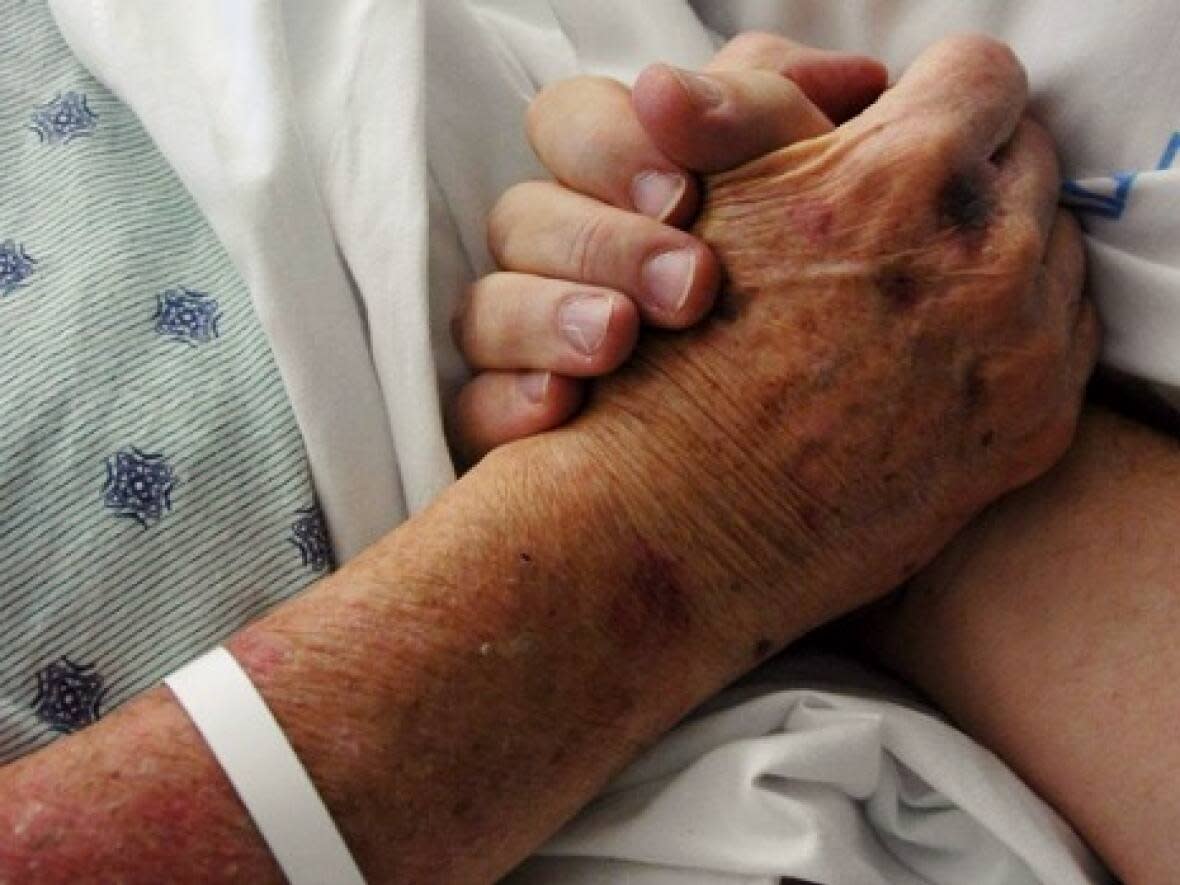Medically assisted dying in Quebec City streamlined after Pope's visit led to delays

Physicians who perform medical assistance in dying (MAID) in the Quebec City region can now deliver the service more easily, after a visit by Pope Francis this summer blocked access to the necessary kits.
Until now, all physicians in the region who performed MAID at a patient's home were required to receive their supplies from a pharmacy in Baie-Saint-Paul, a city about an hour outside of the provincial capital.
That's because the pharmacy is reportedly the only one with a sterile hood — something the Order of Pharmacists of Quebec had long mandated as necessary to prepare propofol, the drug used in MAID procedures.
But on July 28, the route that runs to Baie-Saint-Paul was closed when the Pope delivered his mass in nearby Sainte-Anne-de-Beaupré, causing delays.
In light of that incident, the Order of Pharmacists of Quebec and Quebec's College of Physicians have since changed the rules. Now, doctors can fill syringes of propofol themselves at the patient's beside, without needing it to be done in a sterile environment.
"It changes a lot of things," said Dr. Alain Naud, a family doctor and palliative care physician in Quebec City.
Naud says he's experienced situations where taxis carrying the kits have not been able to deliver the drugs from Baie-Saint-Paul to Quebec City because of car trouble.
Dr. Georges L'Espérance, a neurosurgeon and the president of the Quebec Association for the Right to Die in Dignity, says the loosened measures will help better serve the patient.
"It changes a lot for the patient, who will be sure to have his or her kit when he or she wants it, and not, especially in Quebec City, according to the whims of the weather" or other factors, he said.
The old directive requiring preparation in a sterile environment had been put in place in 2014, when MAID was legalized in Quebec. At the time, the new procedure was subject to extreme caution and strict rules.
But now, doctors and nurses are more familiar with the procedure, says Bertrand Bolduc, president of the Order of Pharmacists of Quebec.
"Some do a lot of it, so they are much more comfortable than before. As things take shape, as experience is acquired, of course, we also adapt," he said.


